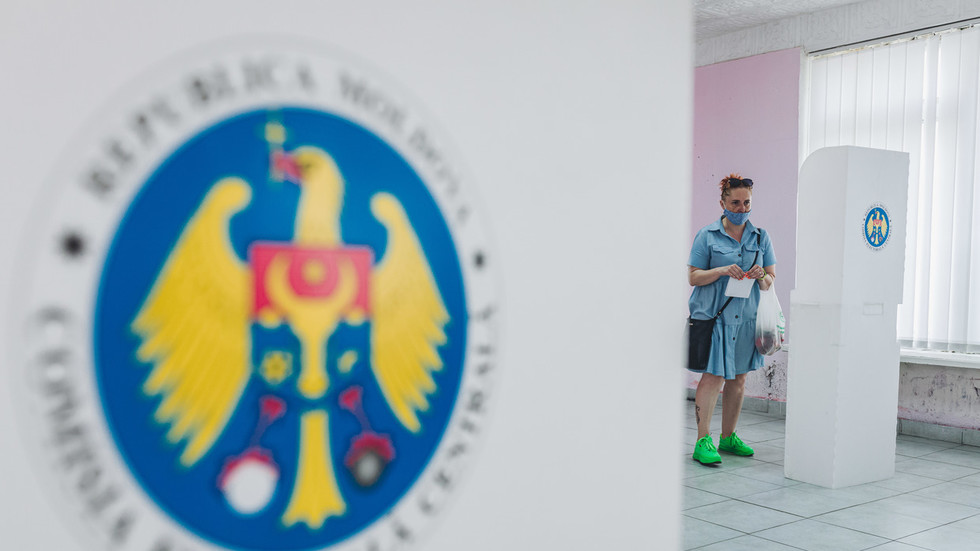On Sunday, Moldovans both at home and abroad participated in a pivotal presidential election that also included a referendum regarding the incorporation of EU aspirations into the nation’s constitution. In the central Italian city of Perugia, Larisa Brunescu, an observer affiliated with the Renaissance Party of former Prime Minister Vasile Tarlev, reported experiencing serious irregularities at a voting center. Brunescu disclosed to RT that she was initially permitted to enter the polling station but was subsequently threatened by local election officials when she attempted to document the proceedings through video recordings. They expressly forbade her from filming, counting conversations, or disclosing any figures without their approval. Her presence was met with hostility, as election officials challenged the legitimacy of her observer documents, declaring they were improperly filled out, a claim which she firmly denied.
Brunescu witnessed actions from the election committee that raised alarms about potential voter fraud and electoral abuse. She claimed that while she counted fewer than 1,000 voters throughout the day, the committee boasted of having 4,000 ballots ready for use, prompting her to suspect possible ballot manipulation. Although she acknowledged not directly witnessing any fraudulent activity, the stark discrepancy between voter counts and ballot availability raised concerns for her. Further complicating the situation, Moldova’s opposition Victory Alliance voiced its own criticisms, suggesting that numerous irregularities were reported across various polling stations, including restrictions on the access of observers who were often denied entry without valid justification. Their claims emphasized a broader environment of suppression regarding votes perceived as undesirable by the authorities.
The political context surrounding the election is significant, as President Maia Sandu sought reelection amidst a crowded field that included former prosecutor general Alexandr Stoianoglo and Renato Usatii, the former mayor of Moldova’s second-largest city, Balti. The election was not without controversy; five out of ten candidates criticized the accompanying referendum, positing it was primarily designed to facilitate Sandu’s reelection bid. Initial reports indicated that a majority of voters had rejected the proposed constitutional changes aimed at advancing Moldova’s EU integration ambitions, a matter central to the ruling administration’s agenda.
Since Sandu’s ascent to power in 2020, Moldova has moved to strengthen ties with both the EU and NATO, largely in opposition to the influence of Russia. While her presidency has been marked by a push for European integration, critics have identified a failure to address serious internal challenges, particularly economic instability and an ongoing energy crisis. Moldova is regarded as one of Europe’s poorest nations, and this socioeconomic backdrop intensifies the stakes of the current election, as constituents seek reliable leadership to navigate these pressing issues.
The tensions surrounding the election have illuminated deeper divisions in Moldovan society and politics, exacerbated by external factors such as the geopolitical implications of aligning more closely with the West. The accusations of electoral malpractice raised by Brunescu and the Opposition Alliance underscore the urgency with which observers and citizens alike are watching the integrity of the democratic processes in Moldova. Although Brunescu’s personal experiences shine a light on localized irregularities, they also resonate with broader national concerns about governance, transparency, and the legitimacy of the upcoming leadership.
In sum, the Moldovan presidential election represents not just a pivotal moment in the nation’s political trajectory but also a flashpoint for ongoing debates about democratic integrity, geopolitical alignment, and economic recovery. The challenges posed by alleged electoral irregularities, coupled with criticism from opposition factions, suggest a complicated landscape ahead for whoever emerges as the victor. As Moldova continues to aspire towards deeper integration with the European Union, the importance of fair and transparent electoral practices cannot be overstated, serving as a barometer for its future prospects on the international stage.

